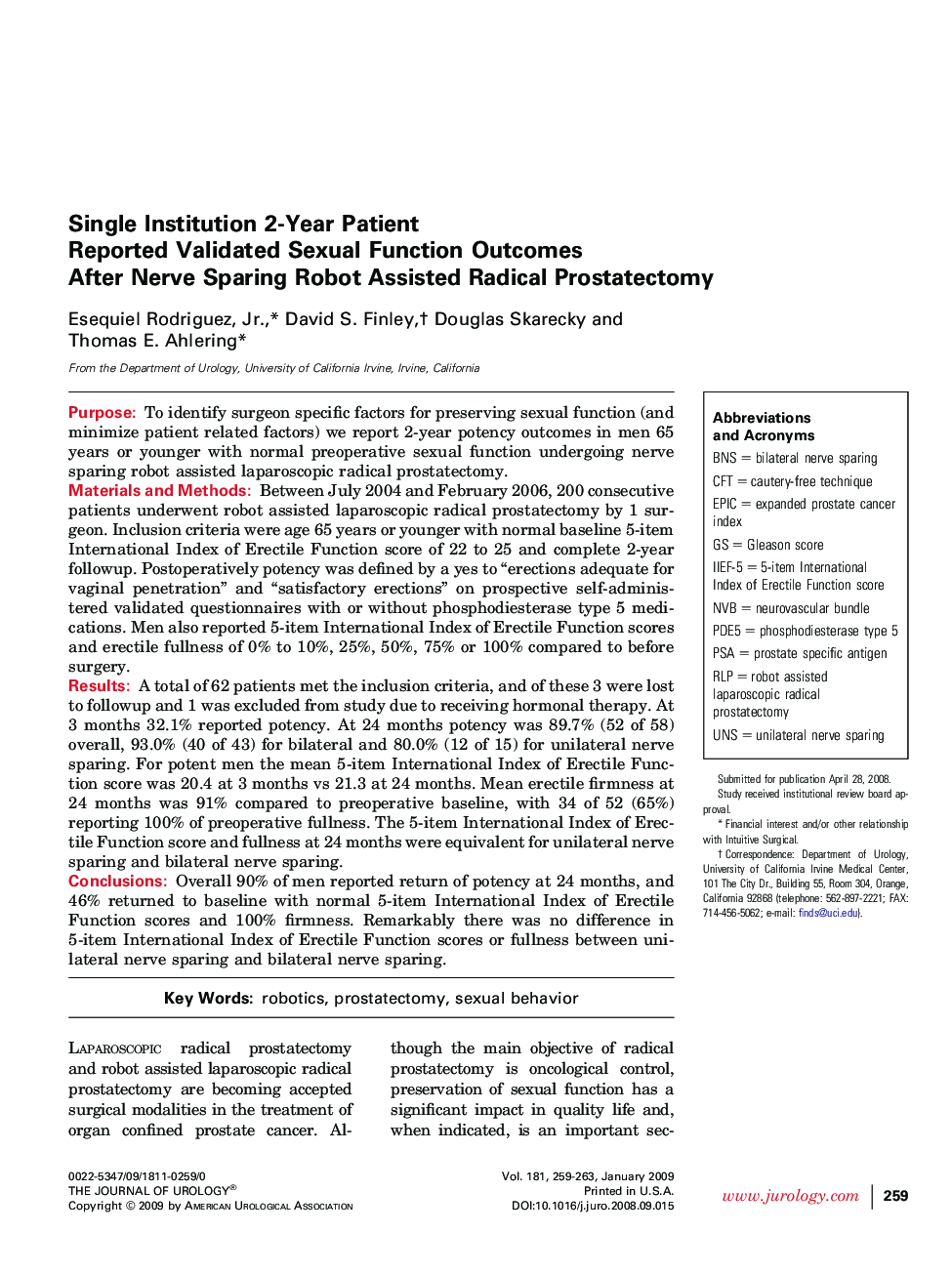| Article ID | Journal | Published Year | Pages | File Type |
|---|---|---|---|---|
| 3872057 | The Journal of Urology | 2009 | 5 Pages |
PurposeTo identify surgeon specific factors for preserving sexual function (and minimize patient related factors) we report 2-year potency outcomes in men 65 years or younger with normal preoperative sexual function undergoing nerve sparing robot assisted laparoscopic radical prostatectomy.Materials and MethodsBetween July 2004 and February 2006, 200 consecutive patients underwent robot assisted laparoscopic radical prostatectomy by 1 surgeon. Inclusion criteria were age 65 years or younger with normal baseline 5-item International Index of Erectile Function score of 22 to 25 and complete 2-year followup. Postoperatively potency was defined by a yes to “erections adequate for vaginal penetration” and “satisfactory erections” on prospective self-administered validated questionnaires with or without phosphodiesterase type 5 medications. Men also reported 5-item International Index of Erectile Function scores and erectile fullness of 0% to 10%, 25%, 50%, 75% or 100% compared to before surgery.ResultsA total of 62 patients met the inclusion criteria, and of these 3 were lost to followup and 1 was excluded from study due to receiving hormonal therapy. At 3 months 32.1% reported potency. At 24 months potency was 89.7% (52 of 58) overall, 93.0% (40 of 43) for bilateral and 80.0% (12 of 15) for unilateral nerve sparing. For potent men the mean 5-item International Index of Erectile Function score was 20.4 at 3 months vs 21.3 at 24 months. Mean erectile firmness at 24 months was 91% compared to preoperative baseline, with 34 of 52 (65%) reporting 100% of preoperative fullness. The 5-item International Index of Erectile Function score and fullness at 24 months were equivalent for unilateral nerve sparing and bilateral nerve sparing.ConclusionsOverall 90% of men reported return of potency at 24 months, and 46% returned to baseline with normal 5-item International Index of Erectile Function scores and 100% firmness. Remarkably there was no difference in 5-item International Index of Erectile Function scores or fullness between unilateral nerve sparing and bilateral nerve sparing.
